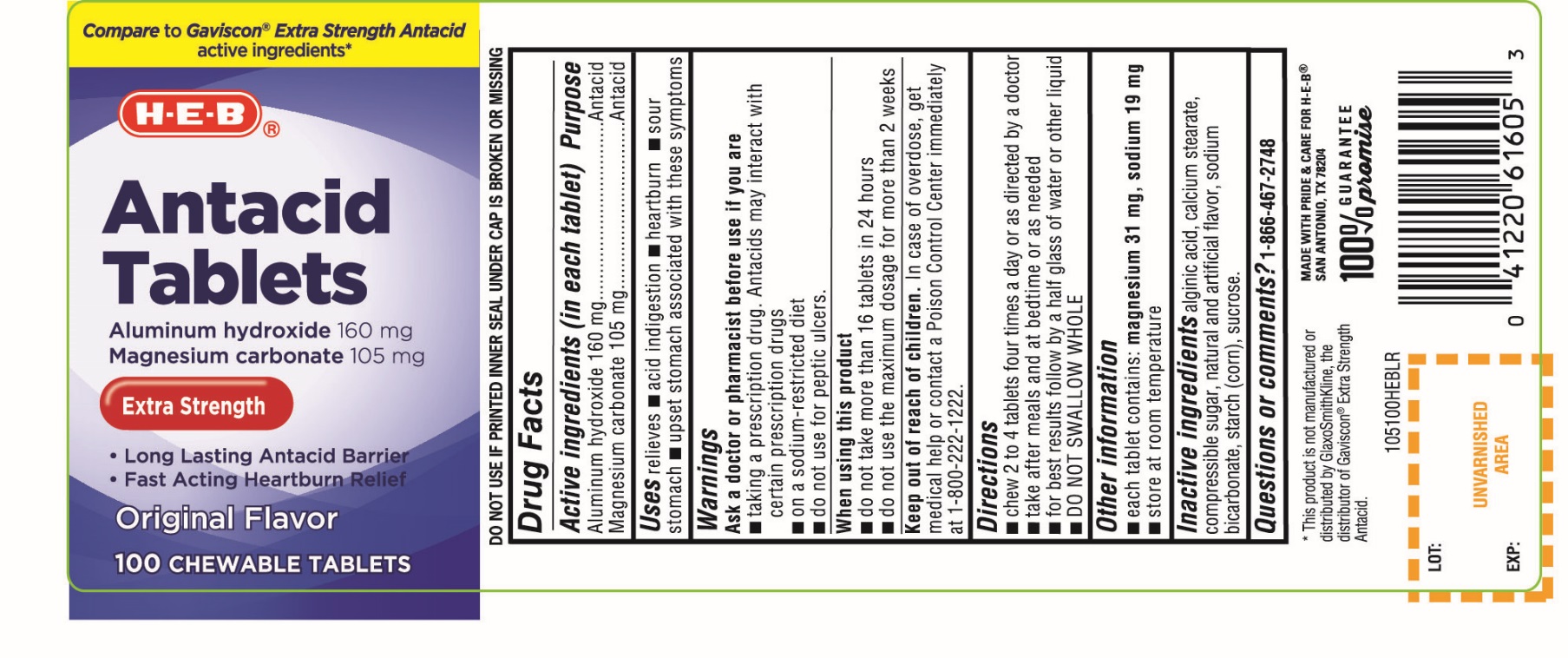
Heb Extra Strength Original Flavor | Aluminum Hydroxide And Magnesium Carbonate Tablet, Chewable while Breastfeeding
What is Heb Extra Strength Original Flavor | Aluminum Hydroxide And Magnesium Carbonate Tablet, Chewable ?
Brief: Antacid Antacid
Can I use Heb Extra Strength Original Flavor | Aluminum Hydroxide And Magnesium Carbonate Tablet, Chewable while breastfeeding?

Heb Extra Strength Original Flavor | Aluminum Hydroxide And Magnesium Carbonate Tablet, Chewable Breastfeeding Analsys
Aluminum hydroxide while Breastfeeding
SafeCAS Number: 21645-51-2
Aluminum does not concentrate into breast milk. After ingestion of antacids the Aluminum plasma levels increase from a basal-point of 7 μg/L to 55 μg/L at half-an-hour with a return to previous level 3 hours later. Although a minimal amount of Aluminum may be found in the milk, there are not shown side-effects in the infant. Mother's milk has a mean concentration of 49 μg/L of Aluminum which is much lower than the amount of 180-700 μg/L found in artificial formulas. Because of a low oral bioavailability the pass from the breast milk toward the infant's plasma is hampered, except in premature and newborn infants who may exhibit a higher intestinal absorption due to an increased permeability. Avoid chronic or excessive use. WHO Model List of Essential Medicines 2002: compatible with breastfeeding.
Magnesium carbonate while Breastfeeding
SafeCAS Number: 546-93-0
Ingested Magnesium does not concentrate into breast milk. Naturally occurring, the mean Magnesium concentration in the milk is 31 mg/L (range 15 – 64 mg/L) and not affected by the ingestion of Magnesium. Because of a low oral bioavailability the pass from the breast milk toward the infant's plasma is hampered, except in premature and newborn infants who may exhibit a higher intestinal absorption due to an increased permeability. Avoid chronic or excessive use. WHO Model List of Essential Medicines 2002: Magnesium carbonate is compatible with breastfeeding.
I am nursing mother and I have already used Heb Extra Strength Original Flavor | Aluminum Hydroxide And Magnesium Carbonate Tablet, Chewable, what should I do?
It is always a good idea to keep your healthcare provider or doctor informed about your drug usage during pregnancy and breastfeeding but if you have not informed your doctor about Heb Extra Strength Original Flavor | Aluminum Hydroxide And Magnesium Carbonate Tablet, Chewable and have used it then do not panic as Heb Extra Strength Original Flavor | Aluminum Hydroxide And Magnesium Carbonate Tablet, Chewable is mostly safe in breastfeeding and should not cause any harm to your baby.
My doctor has prescribed me Heb Extra Strength Original Flavor | Aluminum Hydroxide And Magnesium Carbonate Tablet, Chewable, what should I do?
Usage of Heb Extra Strength Original Flavor | Aluminum Hydroxide And Magnesium Carbonate Tablet, Chewable is safe for nursing mothers and baby, No worries.
If I am using Heb Extra Strength Original Flavor | Aluminum Hydroxide And Magnesium Carbonate Tablet, Chewable, will my baby need extra monitoring?
No
Who can I talk to if I have questions about usage of Heb Extra Strength Original Flavor | Aluminum Hydroxide And Magnesium Carbonate Tablet, Chewable in breastfeeding?
US
National Womens Health and Breastfeeding Helpline: 800-994-9662 (TDD 888-220-5446) 9 a.m. and 6 p.m. ET, Monday through Friday
UK
National Breastfeeding Helpline: 0300-100-0212 9.30am to 9.30pm, daily
Association of Breastfeeding Mothers: 0300-330-5453
La Leche League: 0345-120-2918
The Breastfeeding Network supporter line in Bengali and Sylheti: 0300-456-2421
National Childbirth Trust (NCT): 0300-330-0700
Australia
National Breastfeeding Helpline: 1800-686-268 24 hours a day, 7 days a week
Canada
Telehealth Ontario for breastfeeding: 1-866-797-0000 24 hours a day, 7 days a week
